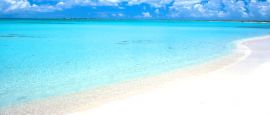Antigua and Barbuda: Doing business & staying in touch
Doing business in Antigua and Barbuda
A lightweight suit is suitable for most business visits. Handshaking is the normal greeting for acquaintances and for formal introductions. Business cards are expected from people who do not live on the islands.
Antigua was one of the first Caribbean islands to actively encourage tourism which continues to dominate the economy, accounting for almost 60% of its GDP. Tourists from the USA, Canada and Europe account for the majority of arrivals to Antigua and Barbuda and economic growth will depend on their continued support. However the Spencer Government which came to power in 2004 has made efforts to diversify the economy into other areas such as agriculture and has been successful in reducing the public debt by fiscal reform initiatives.
Antigua and Barbuda’s economy was severely affected by the Stanford scandal which rocked the islands in 2009. US citizen and major employer in Antigua Allen Stanford was found guilty of perpetrating a huge fraud scheme and was eventually convicted. His Stanford financial group collapsed with disastrous repercussions for the nation, happening as it did as the region was also suffering from the effects of world recession. The Bank of Antigua was subsequently taken over by the Eastern Caribbean Central Bank.
In 2013 Antigua and Barbuda Prime Minister Dr Baldwin Spencer officially launched the country’s Citizenship by Investment Programme as a way to generate much needed income and employment for the country. Already available on a number of other Caribbean islands, this scheme will offer overseas investors the opportunity to become a citizen of Antigua and hold an Antiguan passport. There are different levels – amongst the options are a real estate investment of $400,000; a business investment of at least $1.5 million or a $250,000 contribution to Antigua’s National Development Fund. The government hoped that this scheme will put the country on the road to recovery as well as attracting international attention to its natural assets. The economy grew by about 2% in 2014.
Petroleum products, bedding, handicrafts, electronic components, transport equipment, food and live animals
Food and live animals, machinery and transport equipment, manufactures, chemicals, oil
Keeping in Touch in Antigua and Barbuda
Antigua & Barbuda has an extensive telephone network. Most hotels will have telephone facilities, but it is often cheaper to use VoIP services such as Skype to make international calls.
Roaming agreements exist with most international mobile phone companies. Unregistered roaming is available - visitors with TDMA handsets can make calls without registering, provided they can give a credit card number.
Internet services are available in the larger cities and resorts, although these may be dial-up rather than broadband connections.
Many of Antigua & Barbuda's broadcast media is politically owned or controlled, although this is now changing. The country's first independent radio station Observer Radio launched in 2001 after a five-year struggle to obtain a licence. The daily and weekly press carries a spectrum of opinion, including criticism of the government. Some newspapers have political or governmental associations. All are in English. Following the closure of the Antigua Sun, the main newspaper is The Daily Observer. Cable television is widely available, whilst the local TV station is called ABS (run by Antigua & Barbuda Broadcasting Services). Some radio stations are owned by political or religious factions, such as Crusader Radio, owned by the United Progressive Party. Observer Radio and ZDK are commercial broadcasters as is Sun FM, although it is privately run.








 You know where
You know where